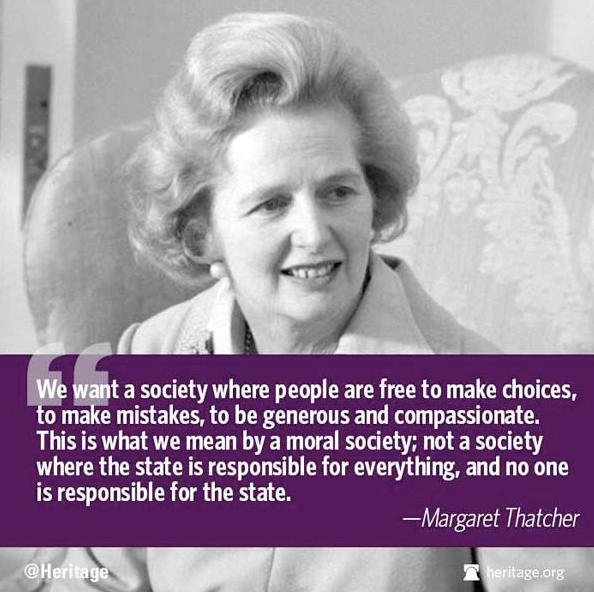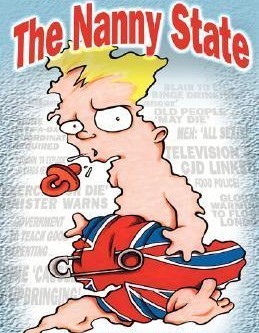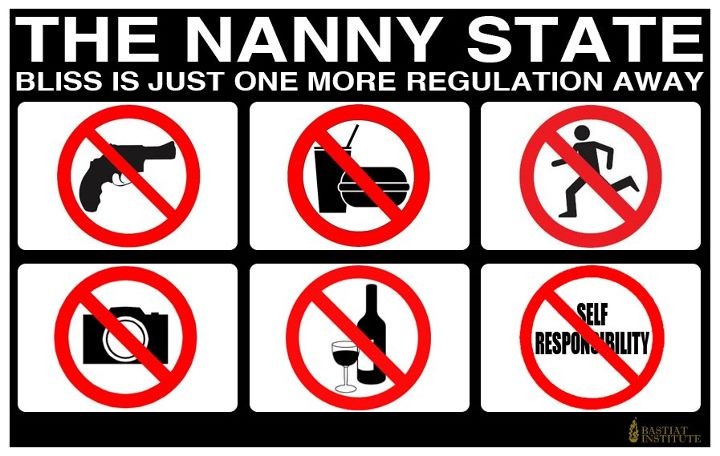
In part three of these articles, I am going to look at how language shapes our perception of “out there” and influences the way we interpret sounds and patterns, coupled with the speeding up of real time in everything we do, by artificial manipulation.
So far, I have considered how the state, by creating and fostering unstable attachment patterns between children and parents has enabled itself to manipulate the population with very little pushback from most people, who having learned that it is a more powerful parent than their biological family, are prepared to accept whatever is thrown at them to avoid abandonment and shame.
In not allowing them to mature to the degree that they feel able to leave the transitional bond, the elites have had a good run for their money over the last forty odd years.
To qualify, this hasn’t happened to everyone, but it has happened to the majority and that’s all that’s needed; minority dissenters can be ignored.
I have spoken in my last two articles about double binds and cognitive dissonance, all products of Winnicott’s false self, in order to keep the transitional bond that people are not developed enough to let go of.
The ultimate victory is the assisted dying bill which so many people are in favour of. The Mummy state not only wants you to attach to it from birth, but also to agree as to when you must detach from not only it, but the world, for the greater good; and millions of people will go along with it because Mummy only wants what’s best for you like all good parents, and no one wants to die suffering.
The low level anxious states that this sort of developmental restriction produces are not pleasant and not good for the person if they go on for long, so why does no one try to get out of these difficulties themselves?
Two reasons. The state doesn’t want it so there is the distraction of therapy for problems an adult could work out for themselves and its attendant nuisances to occupy you. Secondly, which is what I’m going to talk about; the majority of people just don’t have a personally developed vocabulary of enough meaningful words to think about the nuances of fluctuating mental states and physical experiences. Thirdly, most people do not have easy access to the kind of literature where people before them have written about life in a way that would help them to think about what it means to be alive themselves.
In the past this did not matter as hardly anyone thought about their “mental state”. Now that people are not allowed to reach maturity, the internal dissonance that it causes shrieks inside everyone’s head when they get to a certain developmental stage. It causes a lot of problems.
Finally, having the time to think is now reserved for the elites. Ordinary people are judged instantly in real time and are constantly jumping from one situation to another without time to even consider what it all means in a desperate attempt to ward off criticism and rejection and have their existence validated.

But back to language.
I am starting with this because it is an often-misunderstood concept and is also attached to intelligence, which is not really fair in a lot of cases.
Statistics show that vocabulary has increased from the fifties to the present day and everyone thinks it’s great. This is because in the fifties, the majority of poor and industrial working-class people did not have the opportunity to develop their language skills in terms of adding more words than needed in their day to day life to their vocabulary and using them in general conversations.
Now we have the internet and so you would expect a greater amount of verbosity from a larger percentage of the population and this we have got.
But more words does not necessarily mean more ability to express yourself cogently and satisfactorily. What we need to look at is the quality of the words, and if the person’s vocabulary consists of satisfactory words for the situation the person using them lives in.
If you are a person who has specialist knowledge, a lot of the vocabulary you use to describe your world will be connected to that specialism. I once described unhelpful thoughts about anxiety to a plumber, by likening it to a central heating system that had become faulty and caused a critical build up in the pipes, preventing it from working as it should. He got it immediately and was able to visualise what I wanted him to do and why.
In his world, his vocabulary was perfect for who he worked with and the people he knew and he had enough other words to conduct himself in a way that was satisfactory to himself with the life he had outside work; but not enough to engage with the sort of vocabulary that I was used too.
As our descriptions of the “out there” were perspectively different, we had to negotiate a use of our common language to connect both satisfactorily.
Today, such negotiations except in specific circumstances are off the agenda for ordinary people. Most people used to be like my plumber. They not only had their local area to operate in, but also local words and phrases that showed where they came from and who they were connected to and often how they viewed the world.
Language, especially English is ever evolving at different rates and differently in different places, but up until recently at a speed that allowed ordinary people to assimilate any changes they came across . Being a hybrid language is what has made it so successful compared to other much more formal ways of speaking. Perhaps that’s why many English people find the restrictions of learning other languages so difficult.
Now, the English language has been completely changed almost overnight across the board for most people, with words once recently in common use being frowned upon, meanings of words being changed to suit the current agenda and new words that are meaningless to people outside the ones who created them being adopted as a mantra by the elites and as a way of separating the good from the bad.
Certain key phrases depend on the way you say them to decide whether you are ok or not.
Examples are climate change, cultural appropriation and diversity and inclusion to name but three. I mean really, what do they even mean?
Say these in the wrong way or fail to convey understanding in the right way and you have a problem. Individual idiosyncrasies in the use of language are now more or less forbidden in order to foster ‘the greater good’.
These type of phrases and their attendant vocabulary have not evolved over time in the speech of the general public, but put out as packages of acceptable speech by people who are driving an agenda and think they know best.
Because it has been imposed and not evolved, the result is to shut people up and deny them the right to use their mother tongue as they see fit. Needless to say this has resulted’ as it was always going to’ in the hate speech law.
Like a child, who gets sent to their room for swearing in front of mum and dad there can be serious consequences for making too free with the language!
People learn these new speech rules by rote and parrot them when required, which gives the illusion that the vocabulary and as a consequence understanding, is expanding when the words are counted in intelligence tests.
But what does it matter what your vocabulary consists of when you are not allowed to develop your language skills freely to suit your own understanding of the “out there”?
Like the acceptable avatars and role model types I talked about before, we now have an acceptable vocabulary ready made for us and so there is no longer any need to develop an individual approach to speech and by extension thought.
So, to recap, not only has our external presentation been remodelled for us, but also our internal self through the remodelling of our speech and thought patterns too.
Like a parrot, we put forth meaningless sounds in the form of platitudes and word salads that not only mean nothing but leave us deeply unsatisfied and frustrated no matter how much we talk.
Have you noticed that no one ever asks someone to explain what they mean by what they say and then listens to it attentively before they reply?
Partly it is because the person speaking probably doesn’t know what they mean themselves at a deeper level, they only know they are saying the right things because that’s what “mummy and daddy believe so it must be true”. And partly because there is no time for them to examine and consider their thoughts and experiences of and expressions about the outside world.
School and then, if you were still interested university, were the places where this used to happen.
Now, we are all on a schedule where certain parts of our “life” have to be completed within a certain time frame and people who can’t or won’t are considered problematic.
So, here we are with an approved vocabulary of which at least half the words consist of meaningless phrases, aphorisms and epigrams which have no connection to a person’s individual life and were not chosen freely by them over the course of their lives. No matter how much they talk, they never get the satisfaction of true communication. They might as well be shouting at the wind.
Again, shutting people up by only allowing them to talk freely in a certain way is quite clever in an evil sort of way.

Time.
Accounting for a person’s life within a specified time frame ensures that unless you are lucky enough to fit within it, you will be marched through your life at a pace that suits the establishment, not you ,and find yourself at the end before you know it.
People talk about loss of freedom from a lot of perspectives but never from the loss of time.
Time to do things at your own pace, to understand and take the next step when you feel ready, that sort of thing.
The balance between time to discover the right life for you and the time such things must be put aside in order to fulfil obligations and earn your bread has completely vanished. Does it really matter if you do a degree at eighteen or eighty? It didn’t used to in the seventies but it sure as hell matters now. Society has been organised so that you do certain things at certain times within certain timeframes. This makes it much easier for your new parents to organise things.
I did say at the start of this that all is not lost; yet.
Firstly, we must be very brave and cut the state sponsored transitional bond and the concurrent acceptance, albeit sullen at times, that we just have to suck it up. We do this by accepting that we will be punished at first for showing independence and that we will have to put up with having things taken away from us until we can reorganise ourselves not to need them. Like the independent schools fiasco, there are other options. With a lot of people working from home, using the money you would have spent on private schools hiring online tutors for your children is one possibility. Don’t be afraid to try out new ways of being. If it doesn’t work, try something else; you don’t have to run back to the state for protection every time something goes wrong.
The fear comes from never trying to be your true self, for fear of being punished for your wickedness.
Remember, the transitional bond works both ways. What do you think all those mother-in-law jokes were about? Parents also find it very difficult not to be the centre of their child’s world. One became two when you were born and there will always be a subtle need to reunite hanging about in the back of your mind.
We give validity to the state as much as we seek validity from it. Stop making yourself ill trying to solve the unsolvable. Read more books of a wide variety whilst you still can and make language work for you. Keep your children away from toxic government environments. Ignore the mainstream media, take back time to work for you and yours in a way that suits you. Make sure your children read books of worth and no one who has published after 1980, unless you have read it first and approve, then discuss what they have read with them.
It will take another couple of generations to start to row back on this.
The state is only relevant because we allow it to be. We can work towards quietly removing as much of it from our lives as we can and thus be the ones doing the ostracising.
If we don’t encourage people to grow up, the general population, cocooned in their artificial infancy and fear of abandonment will continue to elect the very worst of society and everything that has been achieved over the last two thousand years will be gone - along with the people who achieved it.